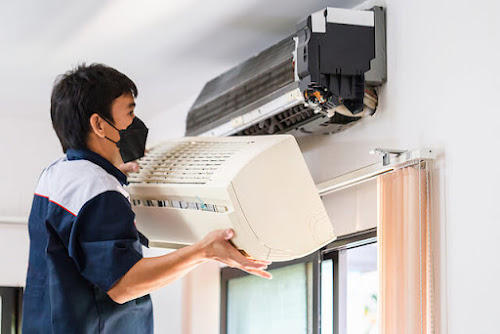The Ultimate Guide to Air Conditioning Filters
In our modern world, where comfort is paramount, air conditioning systems play a vital role in maintaining pleasant indoor environments. A key component of these systems that often goes unnoticed is the air conditioning filter. Despite its unassuming appearance, the filter is the unsung hero that ensures the air we breathe indoors is clean, fresh, and free from pollutants. In this comprehensive guide, we will delve into everything you need to know about air conditioning filters, their types, benefits, maintenance, and how to choose the right one for your system.
Introduction
Air conditioning systems have become an integral part of our lives, providing respite from scorching summers and creating a comfortable indoor environment. However, behind the scenes, various components work together to ensure the system's efficiency. One such component is the air conditioning filter.
Importance of Air Conditioning Filters
Air conditioning filters are not just barriers that prevent dust from entering the system; they are essential for maintaining indoor air quality. These filters trap dust, pollen, pet dander, mold spores, and other particles, preventing them from circulating in the air we breathe. This filtration process not only keeps the air clean but also enhances the efficiency and longevity of the HVAC system.
Types of Air Conditioning Filters
Fiberglass Filters
Fiberglass filters are the most basic type, consisting of layered fiberglass fibers. They are designed to protect the HVAC system from large particles and are relatively inexpensive. However, they are less effective at capturing small particles and allergens.
Pleated Filters
Pleated filters have a larger surface area due to their folded design. This design allows for better particle capture and filtration. They are available in various MERV ratings, making them suitable for capturing smaller particles and even some bacteria.
HEPA Filters
High-Efficiency Particulate Air (HEPA) filters are the gold standard for air filtration. They can capture incredibly small particles, including viruses and bacteria. HEPA filters are often used in environments where air quality is critical, such as hospitals and laboratories.
Washable Filters
Washable filters offer a sustainable option. They can be reused after cleaning, reducing waste. However, their filtration efficiency may be lower compared to disposable filters.
Benefits of Regular Filter Maintenance
Regular air conditioning service in Melbourne for air conditioning filters is crucial. Clean filters ensure optimal airflow, which directly impacts energy efficiency. Moreover, clean filters prevent dust buildup on sensitive HVAC components, reducing the risk of malfunctions and extending the system's lifespan.
How to Change an Air Conditioning Filter?
Changing the filter might seem daunting, but it's a simple process. Turn off the system, locate the filter, remove the old one, and insert the new filter in the same direction as the old one. Regularly changing the filter, typically every three months, enhances air quality and system efficiency.
Choosing the Right Filter for Your System
Choosing the right filter involves considering factors like filter size, the Minimum Efficiency Reporting Value (MERV) rating, and your indoor air quality needs. A filter with a higher MERV rating captures more particles but might restrict airflow, so striking a balance is essential.
7. Factors to Consider When Buying Air Filters
Filter Size
The filter should snugly fit the filter slot. Measure the dimensions accurately before purchasing a new filter.
MERV Rating
MERV ratings range from 1 to 20. Higher ratings indicate better filtration, but they can also affect airflow. Consider your specific requirements.
Air Quality
If allergies or respiratory issues are a concern, opt for a filter with a higher MERV rating that can capture finer particles.
Common Misconceptions about Air Conditioning Filters
Myth: The highest MERV rating is always the best.
Reality: While higher MERV ratings offer better filtration, they might not be suitable for all systems.
DIY vs. Professional Maintenance
Some maintenance tasks, like filter replacement, can be DIY. However, it's advisable to have an HVAC professional conduct regular inspections and more complex maintenance to ensure system efficiency.
Conclusion
Air conditioning filters are the unsung heroes of indoor air quality and system efficiency. Regular maintenance and choosing the right filter can significantly impact the air you breathe and the longevity of your HVAC system. So, next time you enjoy a breath of fresh, cool air, remember to thank your air conditioning filter.

Comments
Post a Comment